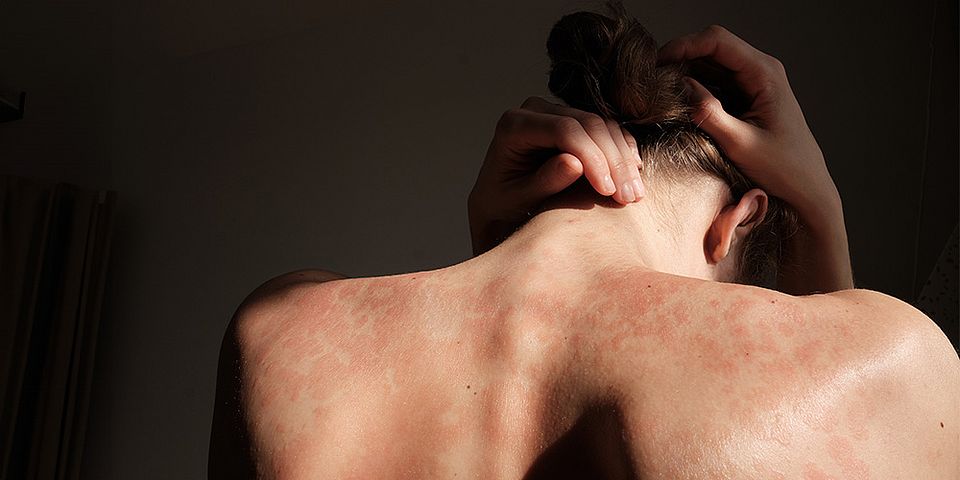/ News, Research / Angelika Jacobs
Collector of unexplained cases (Recher Lab and Navarini Lab)
Immunologist Mike Recher sees a wide variety of health problems when he consults on rare immune disorders. Finding the cause requires both technology and lateral thinking.
The range of symptoms that can occur when one of the cogs (or, perhaps, cogwheels) in the immune system's machinery gets stuck is enormous - from severe psoriasis to frequent infections to chronic diarrhea. Which makes diagnosis difficult. It is only when standard treatments fail to help a patient and the treating doctor has the right instinct, that the patient may be sent to a consultation for rare immune disorders in Basel.
Professor Mike Recher from the University of Basel has been collecting special cases for more than 10 years and has now built up a cohort of more than 500 patients that reflects the sheer variety of health problems.
Suspicious immune blood count
Recher has an ally in the search for the causes in the dermatologist Professor Alexander Navarini, who is also a researcher at the University of Basel. About 20 years ago, a fascination with immunology led both of them to the laboratory of Professor Rolf Zinkernagel at the University Hospital Zurich, who was awarded the Nobel Prize in Medicine for his research on the immune defense against viruses. Recher and Navarini still collaborate today, for example in cases where an immune disorder might be the cause of a skin disease.
"For example, if we have a person who suffers from recurrent yeast infections or who is unable to get rid of warts on their skin, the suspicion falls on their immune system," explains Navarini. If, on further examination, we find that the distribution of immune cells in their blood is abnormal, it is worth following up the suspicion.
Thanks to DNA sequencing, computational analysis and large gene databases, researchers can identify any changes in the genetic material that could affect the functioning of the immune system. Special attention is paid to genes known to be associated with immune function - and to changes in these genes that alter the protein blueprint.
If such a mutation is found, cell culture experiments are carried out - with immune cells isolated from the patient's blood and with model cell lines into which the researchers introduce the same mutation. Finally, the scientists can determine whether the gene mutation found is actually relevant to immune function.
Targeted treatments
The effort is paying off: Mike Recher and his team are able to identify the culprit mutation in a quarter to a third of the unexplained cases referred to him by general practitioners from all over Switzerland at his special consultation hours at the University Hospital Basel.
This was the case with one of the first cases the Basel team investigated - an adult man who had been suffering from severe diarrhea for 10 years without any evidence of pathogens in his intestines. However, a tissue sample from his intestinal wall showed that an unusually large number of T cells had accumulated there as part of an inflammatory response. Standard treatment with cortisone to suppress the inflammation of the bowel wall did not improve his condition.
DNA analysis by Alexander Navarini and lateral thinking led Recher's team to the root of the problem: a T cell regulator that normally limits their activity was not working properly.
This regulator also plays a role in immunotherapies against cancer, because you want the T cells to be able to attack a tumor efficiently. Therefore, drugs are used to switch off the regulator as much as possible. The side effect is a kind of "hyperactivity" of the T-cells in the gut, which leads to diarrhea. Just like the patient with chronic diarrhea.
Eventually, the patient received targeted antibody therapy that specifically eliminated the T cells in the bowel wall. His digestion returned to normal.

